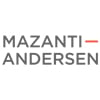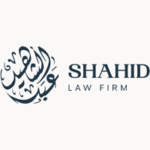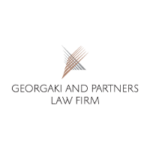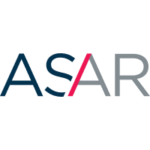-
What are the key rules/laws relevant to M&A and who are the key regulatory authorities?
Mergers and acquisitions (M&A) in Lebanon are governed by multiple laws and regulations, primarily:
- Lebanese Code of Commerce (as amended by Law No. 126/2019): Introduced significant reforms impacting corporate transactions, including M&A.
- Law No. 360/2001 on the “Encouragement of Investments in Lebanon”: Grants incentives to foreign investors and empowers the Investment Development Authority of Lebanon (IDAL) to promote investment and issue necessary permits.
- Competition Law No. 281/2022: Established a merger control regime, requiring clearance from the National Competition Authority (NCA) for certain transactions.
- Labor Law Regulations: Governs employment matters in M&A transactions, particularly regarding employee rights and obligations.
- Boycott of Israel Law (23 June 1955): Prohibits mergers or transactions between Lebanese and Israeli entities.
- Code of Money and Credit: Regulates bank mergers, imposing specific approval requirements.
- The Beirut Stock Exchange By-laws (“BSE”) which regulates stock exchange of Listed Companies under the BSE.
- The “Series 6000” on Offers and securities which regulates public bids and offers of securities.
While private M&A transactions are not regulated by a dedicated authority, certain transactions fall under regulatory oversight such as:
- Bank Mergers: Under Articles 132(b) and (d) of the Code of Money and Credit, banks seeking to merge or convert into a foreign branch must obtain prior approval from the Central Bank of Lebanon. Additionally, any merger involving two or more banks requires approval from the Central Council of the Bank of Lebanon.
- Public Companies Mergers: The Capital Markets Authority (CMA) oversees significant stock acquisitions in public companies and regulates procedures for merger and acquisition offers.
- Listed Companies are regulated by the BSE.
-
What is the current state of the market?
Lebanon’s M&A market has faced significant slowdowns due to successive crises, including the COVID-19 pandemic, the 2019 banking and economic crisis, and most recently, the Israel-Lebanon conflict of September 2024. These events have severely impacted investor confidence, liquidity, and overall market activity.
The 2019 financial collapse, marked by banking restrictions and a sharp currency devaluation, led to a decline in private equity transactions and corporate consolidations. The COVID-19 pandemic further disrupted business operations, delaying investment decisions and transaction timelines. While the market showed some signs of recovery in 2023, investors remained cautious due to ongoing political and economic instability.
The Israel-Lebanon conflict in September 2024 added another layer of uncertainty, slowing M&A activity as businesses and investors adopted a wait-and-see approach. However, despite these challenges, M&A actors are preparing for improved market conditions, with some anticipating a potential rebound in the second half of 2025, once geopolitical tensions ease and economic reforms progress.
-
Which market sectors have been particularly active recently?
Despite Lebanon’s challenging economic environment, certain market sectors have remained active in M&A transactions and investment activity:
The first notable active sector is in energy and renewables. Given the country’s ongoing electricity crisis, there has been a surge in private sector investments in solar energy and alternative power solutions, particularly in decentralized and off-grid solar projects. International investors and development agencies have shown interest in financing renewable energy projects.
Secondly, while the real estate sector suffered from the economic crisis, it has nevertheless remained an active sector with distressed asset acquisitions and strategic real estate investments continuing, particularly from Lebanese expatriates seeking to secure assets at reduced valuations.
The F&B sector has been a bright spot, with local brands expanding regionally and international players showing interest in franchising and acquisitions, despite domestic economic constraints.
Lastly, the Lebanese insurance market has witnessed one of the biggest mergers in the field with the two biggest Insurance companies “LIA” & “ASSUREX” merging.
-
What do you believe will be the three most significant factors influencing M&A activity over the next 2 years?
The M&A activity in Lebanon will be heavily influenced by (i) geopolitical tensions, including the aftermath of the Israel-Lebanon conflict and broader regional instability. Additionally, (ii) the country’s economic recovery and financial reforms, particularly those related to banking sector restructuring and potential IMF negotiations, will play a crucial role in shaping investor confidence. The (iii) political landscape, including upcoming government reforms and the recent presidential elections, will also be a key factor in determining the trajectory of M&A transactions.
-
What are the key means of effecting the acquisition of a publicly traded company?
The acquisition of a publicly traded company in Lebanon is carried out through the BSE and requires submitting a formal proposal to the Securities and Exchange Committee (SEC). This proposal must include key details such as the Bidder’s objectives for the company’s management, the number of financial instruments and voting rights currently held, the minimum and maximum number of additional shares they intend to acquire, the proposed cash price and exchange terms, and an irrevocable commitment to these conditions, supported by the necessary financial guarantees.
Once submitted, the SEC reviews the proposal, and if approved, the offer is officially listed, enabling the transaction to proceed in accordance with market regulations.
-
What information relating to a target company is publicly available and to what extent is a target company obliged to disclose diligence related information to a potential acquirer?
The availability of information on a target company in Lebanon depends on its legal structure and whether it is a private or public entity. For private companies, such as a Limited Liability Company ‘Société à Responsabilité Limitée” (SARL) or Joint Stock Company “Société Anonyme Libanaise” (SAL), only limited corporate details are publicly accessible. Indeed, information that is registered and filed with the Commercial Register is of public record and may therefore be inspected by any third parties. Information that can be obtained from the Commercial Register include the company’s name, incorporation date, legal form, registered address, Company resolutions (whether Ordinary or Extraordinary). Additionally, details on share capital, ownership structure (if disclosed), and the names of directors, Ultimate Beneficial Owner and legal representatives may be available.
For public companies, stricter disclosure requirements apply under the oversight of the Capital Markets Authority (CMA). These companies must regularly publish financial statements, disclose their shareholder structure, and provide reports on material transactions and corporate governance.
Moreover, there is no general legal obligation for a target company to disclose due diligence information to a potential acquirer. Disclosure obligations arise contractually through Non-Disclosure Agreements (NDAs) or Memorandums of Understanding (MOUs) signed during negotiations. While sellers often provide financial, legal, and operational information to attract serious buyers, they retain full discretion over the extent of disclosure.
-
To what level of detail is due diligence customarily undertaken?
In Lebanon, the disclosure of information to potential acquirers is largely driven by the negotiations between the parties. The target company ultimately determines the scope of disclosure, balancing the acquirer’s requests against its own strategic interests. While market practice favors transparency to facilitate dealmaking, the extent of information shared remains subject to non-disclosure agreements (NDAs) or confidentiality undertakings.
The level of detail in a due diligence process depends on multiple factors, including the nature and complexity of the transaction, the industry in which the target operates, and regulatory considerations. Sectors with stricter compliance requirements, such as finance, often necessitate more in-depth disclosures. In recent years, due diligence in Lebanon has increasingly adopted an issue-based or red-flag approach, focusing on identifying critical risks rather than conducting an exhaustive review. This streamlined process allows acquirers to prioritize key concerns while ensuring efficient decision-making.
-
What are the key decision-making bodies within a target company and what approval rights do shareholders have?
In Lebanon, the key decision-making bodies within a target company typically include the board of directors and the general assembly of shareholders. Their respective roles and approval rights depend on the company’s legal structure, primarily whether it is a SAL or SARL.
In an SAL, the board of directors is responsible for overseeing the company’s operations, approving major business decisions, and negotiating M&A transactions. However, certain fundamental decisions, such as approving a merger, selling substantial assets, or modifying the company’s purpose, require shareholder approval through an extraordinary general meeting. Shareholders in an SAL exercise their rights based on their equity stakes and can vote on critical matters, including capital increases, amendments to the company’s bylaws, and the appointment or removal of directors.
In an SARL, decision-making is more centralized, with its members playing a more direct role in governance. The assembly of members must approve key corporate actions, including changes to the company’s structure, capital, or ownership. Unlike an SAL, which operates with a board of directors, an SARL may be managed by one or more appointed managers who handle day-to-day operations.
Regardless of the company type, shareholders/members generally retain veto rights over decisions that significantly impact their ownership or financial interests such as a merger transaction. Additionally, Lebanese law and the company’s bylaws may grant minority shareholders certain protective rights, such as preemptive rights in share issuances or the ability to challenge decisions that could be detrimental to their interests.
-
What are the duties of the directors and controlling shareholders of a target company?
The primary responsibility of the directors in a merger is to review and discuss the reports prepared by the financial auditors of both the Selling Company and the Acquiring Company, as well as any supplementary financial auditor(s) appointed by the judge overseeing the Corporate Restructuring process. Based on these reports, the directors are required to prepare their own report on the merger process and present it to the Extraordinary General Assembly (“EGA”) of each company, where the merger will be voted on. However, the fate of the merger transaction rests with the shareholders who own more than 2/3 of the share capital represented at the meeting (“Controlling shareholders” or “Majority Shareholders”).
-
Do employees/other stakeholders have any specific approval, consultation or other rights?
In Lebanon, employees and other stakeholders generally do not have direct approval rights in the context of mergers or acquisitions. However, certain protections and rights are available in certain cases.
For instance, in a merger transaction creditors of the Company have protective rights, and the use of their rights defer on whether the creditor is a Bondholder or another creditor of the Company:
Under the Lebanese Code of Commerce, the merger proposal must be submitted to the Assembly of Bondholders for approval. If the Assembly grants its approval, the debt is transferred to the Benefiting Company, making it liable as the new debtor. However, if the Bondholders reject the merger, their veto does not prevent the transaction from proceeding. Instead, the merger will not be enforceable against them, and the debt will be settled from the liquidated assets of the Disappearing Company.
Other creditors may challenge the transaction by filing an objection before the First Instance Tribunal within one month of announcement of the Merger. However, such an objection does not prevent the transaction from moving forward. The Tribunal may decide to: (i) reject the opposition, (ii) order the settlement of the debt, or (iii) accept the guarantees proposed by the Benefiting Company or require additional securities. It is crucial to note that the merger will proceed regardless, but non-compliance with the Court’s ruling will render the transaction unenforceable against these creditors, allowing them to recover their claims from the liquidated assets of the Disappearing Company.
-
To what degree is conditionality an accepted market feature on acquisitions?
Conditionality is widely accepted in Lebanon, allowing for regulatory approvals, due diligence, Material Adverse Change (MAC) clauses, and financing conditions.
-
What steps can an acquirer of a target company take to secure deal exclusivity?
The acquirer will typically include an exclusivity requirement in a letter of intent or MOU agreed with the seller. This period typically allows the acquirer’s advisors to conduct the necessary due diligence while ensuring that the seller and the target are not negotiating with other parties. Moreover, and in order to safeguard this exclusivity, a break-up fee will almost always be included.
-
What other deal protection and costs coverage mechanisms are most frequently used by acquirers?
To safeguard their interests, acquirers often rely on market practices such as break-up fees, no-shop and exclusivity agreements, MAC clauses, lock-in clauses, financing conditions, warranty and indemnity clauses, among others.
-
Which forms of consideration are most commonly used?
In the event of a merger, and in compliance with the provisions of the Lebanese Code of Commerce, shareholders of the Disappearing Company must exchange their shares for shares in the Benefiting Company. Additionally, they may be entitled to a cash premium, as long as it does not exceed 10% of the nominal value of the newly issued shares.
Moreover, in an acquisition or sale transactions, cash consideration is the more prevalent method of payment in Lebanon.
-
At what ownership levels by an acquirer is public disclosure required (whether acquiring a target company as a whole or a minority stake)?
Lebanese law does not mandate public disclosure for unless specific regulatory approvals are required (e.g. Investors that are interested in acquiring more than 10% of the shares of publicly traded companies are required to make a public bid which entails disclosing specific information). Moreover, any change in ownership of shares or partners must be recorded in the Commercial Register, making it accessible to the public.
-
At what stage of negotiation is public disclosure required or customary?
Under the Competition Law mentioned above (refer to question 1) major transactions, whether occurring within Lebanon or abroad, must obtain clearance from the National Competition Authority (NCA) if the parties involved have collectively held a market share exceeding 30% over the past three fiscal years. Prior to finalizing the transaction, the relevant parties are required to notify the NCA and secure its approval.
Additionally, the Competition Law allows for voluntary reporting under specific conditions. Parties may choose to disclose a transaction once a preliminary agreement has been reached, a goodwill commitment has been signed, or the deal has been made public, provided it has progressed to a stage where the NCA can conduct its assessment.
-
Is there any maximum time period for negotiations or due diligence?
There is no statutory maximum time limit for negotiations or due diligence in Lebanon. The timeline for these processes is typically determined by the parties involved and may vary depending on the complexity of the transaction, the industry, and the scope of the due diligence required. However, parties often set timeframes contractually, particularly in letters of intent or exclusivity agreements, to ensure efficiency and prevent indefinite negotiations.
-
Is there any maximum time period between announcement of a transaction and completion of a transaction?
Lebanese law does not impose a maximum time period between the announcement and completion of a transaction. The timeline depends on various factors, including the complexity of the deal, regulatory approvals, due diligence, and contractual agreements between the parties. Additionally, parties may agree on specific deadlines in their contracts, including long-stop dates, to prevent undue delays and ensure the transaction is finalized within a reasonable period.
-
Are there any circumstances where a minimum price may be set for the shares in a target company?
Lebanese law does not generally impose a minimum price for the shares of a target company in private M&A transactions, as pricing is typically determined through negotiations between the parties. However, in cases involving publicly listed companies, the Beirut Stock Exchange may set specific pricing requirements to ensure fairness and protect minority shareholders. Additionally, contractual agreements—such as shareholder agreements or investment terms—may include provisions that establish a minimum share price to safeguard investors’ interests.
-
Is it possible for target companies to provide financial assistance?
In Lebanon, a target company’s ability to provide financial assistance for the acquisition of its own shares is subject to legal restrictions. Under the Lebanese Code of Commerce, a company is generally prohibited from financing the purchase of its own shares, whether through loans, guarantees, or other financial arrangements, as this could lead to market manipulation and conflicts of interest.
-
Which governing law is customarily used on acquisitions?
In Lebanon, the governing law for acquisitions is typically based on the Lebanese Code of Commerce, which provides the legal framework for business transactions, including mergers, acquisitions, and the regulation of corporate structures. However, parties involved in an acquisition often choose to apply international governing laws, particularly when the transaction involves foreign investors or cross-border elements. The choice of governing law in an acquisition is typically specified in the transaction documents, such as the sale and purchase agreement (SPA), and it is crucial to ensure that the chosen law aligns with the goals of the parties and provides legal clarity for resolving disputes.
Commonly, English law is used for international acquisitions due to its well-established legal principles and the fact that many investors and companies involved in the transaction may have business ties to English-speaking jurisdictions. Alternatively, if the acquisition is conducted between Lebanese entities or focuses on Lebanese assets, the parties may opt for Lebanese law to ensure compliance with local legal requirements.
However, it is important to note that while the governing law regulates the agreement on the transfer of shares or the merger itself, any formalities related to the transaction that involve Lebanese entities must comply with Lebanese legal formalities. This includes registration requirements, approvals from relevant authorities, and other procedural aspects mandated by Lebanese law.
-
What public-facing documentation must a buyer produce in connection with the acquisition of a listed company?
When a target company is publicly traded, bids are disclosed to the market. To support their public offer application, the Bidder(s) must submit a proposal to the SEC detailing their objectives for the company’s management, the number of financial instruments they currently hold along with their associated voting rights, the minimum and maximum number of additional instruments and voting rights they intend to acquire, the proposed cash price and exchange terms, and an irrevocable commitment to these conditions, backed by the necessary financial guarantees.
-
What formalities are required in order to document a transfer of shares, including any local transfer taxes or duties?
In Lebanon, the formalities for documenting a share transfer involve both publication and filling the share transfer documents at the Commercial Register.
In the event of a merger, a summary of the merger deed must be published in the official gazette and a local newspaper within one month of the Extraordinary General Assembly approving the merger. The full merger deed, along with the minutes of the Assembly and the board of directors’ merger report, must be filed with the Commercial Register.
Additionally, the financial auditors of both the Target Company and the Acquiring Company must prepare a unified report detailing the merger process, assessing the valuation of shares, and determining the exchange ratio. This report must confirm that the net assets of the Target Company are at least equal to the value of the proposed capital increase in the Acquiring Company.
The judge overseeing the CR will appoint one or more independent financial auditors to review the unified report and provide a reasoned assessment within three months of their appointment. The auditors’ reports must also be filed in the CR records of both companies, making them publicly available.
Moreover, the transfer of shares must be paid for, along with any applicable tax fees. However, it should be noted that in the event of a merger, transfer fees have been waived under the amended Lebanese Commerce Code to encourage corporate consolidations. Additionally, a discounted tax rate has been introduced as an incentive for mergers. However, these charges remain subject to change at the discretion of the Ministry of Finance, which may modify the applicable rates or conditions through ministerial decisions.
-
Are hostile acquisitions a common feature?
Hostile acquisitions are relatively rare in Lebanon compared to other jurisdictions, such as the United States or the United Kingdom or United States, where they are more common. The Lebanese market tends to favor more amicable M&A transactions. While hostile acquisitions are not entirely ruled out, they are relatively rare in Lebanon. This is due to practical challenges, including the need for shareholder approval, the difficulty in acquiring substantial stakes without management cooperation, and the strong influence of family-owned businesses, which are common in the Lebanese market.
-
What protections do directors of a target company have against a hostile approach?
Lebanese law does not regulate defensive measures. However, it is important to note that the EGA is the sole authority in both the Target Company and the Acquiring Company empowered to approve or reject mergers, demergers, and acquisition offers. Directors are obligated to implement the EGA’s decisions; failure to do so may result in their dismissal ad nutum.
-
Are there circumstances where a buyer may have to make a mandatory or compulsory offer for a target company?
There is no mandatory offer mechanism in Lebanon.
-
If an acquirer does not obtain full control of a target company, what rights do minority shareholders enjoy?
The rights of minority shareholders depend on whether specific provisions addressing them are included in the sale and purchase agreement or a shareholder agreement. In practice, investors often incorporate contractual clauses that limit minority shareholders’ rights, such as classifying them as silent partners in order to encourage investment.
In the absence of such provisions, minority shareholders are entitled by law to full shareholder rights, including voting rights and financial entitlements, such as dividend distributions. More importantly, while they may not have the power to block ordinary resolutions, they can prevent the adoption of special resolutions, which require a higher and stricter majority of the share capital.
Furthermore, majority shareholders must not abuse their controlling position to the detriment of the company’s interests or the rights of minority shareholders. The law provides protections against such conduct to safeguard minority shareholders.
-
Is a mechanism available to compulsorily acquire minority stakes?
No Squeeze-Out mechanisms exist under Lebanese Law.
Lebanon: Mergers & Acquisitions
This country-specific Q&A provides an overview of Mergers & Acquisitions laws and regulations applicable in Lebanon.
-
What are the key rules/laws relevant to M&A and who are the key regulatory authorities?
-
What is the current state of the market?
-
Which market sectors have been particularly active recently?
-
What do you believe will be the three most significant factors influencing M&A activity over the next 2 years?
-
What are the key means of effecting the acquisition of a publicly traded company?
-
What information relating to a target company is publicly available and to what extent is a target company obliged to disclose diligence related information to a potential acquirer?
-
To what level of detail is due diligence customarily undertaken?
-
What are the key decision-making bodies within a target company and what approval rights do shareholders have?
-
What are the duties of the directors and controlling shareholders of a target company?
-
Do employees/other stakeholders have any specific approval, consultation or other rights?
-
To what degree is conditionality an accepted market feature on acquisitions?
-
What steps can an acquirer of a target company take to secure deal exclusivity?
-
What other deal protection and costs coverage mechanisms are most frequently used by acquirers?
-
Which forms of consideration are most commonly used?
-
At what ownership levels by an acquirer is public disclosure required (whether acquiring a target company as a whole or a minority stake)?
-
At what stage of negotiation is public disclosure required or customary?
-
Is there any maximum time period for negotiations or due diligence?
-
Is there any maximum time period between announcement of a transaction and completion of a transaction?
-
Are there any circumstances where a minimum price may be set for the shares in a target company?
-
Is it possible for target companies to provide financial assistance?
-
Which governing law is customarily used on acquisitions?
-
What public-facing documentation must a buyer produce in connection with the acquisition of a listed company?
-
What formalities are required in order to document a transfer of shares, including any local transfer taxes or duties?
-
Are hostile acquisitions a common feature?
-
What protections do directors of a target company have against a hostile approach?
-
Are there circumstances where a buyer may have to make a mandatory or compulsory offer for a target company?
-
If an acquirer does not obtain full control of a target company, what rights do minority shareholders enjoy?
-
Is a mechanism available to compulsorily acquire minority stakes?





























